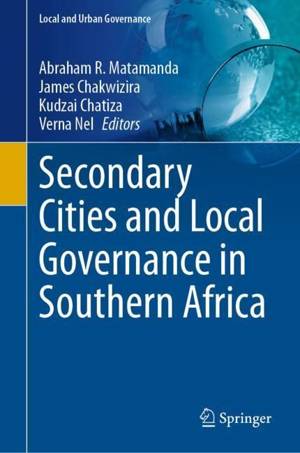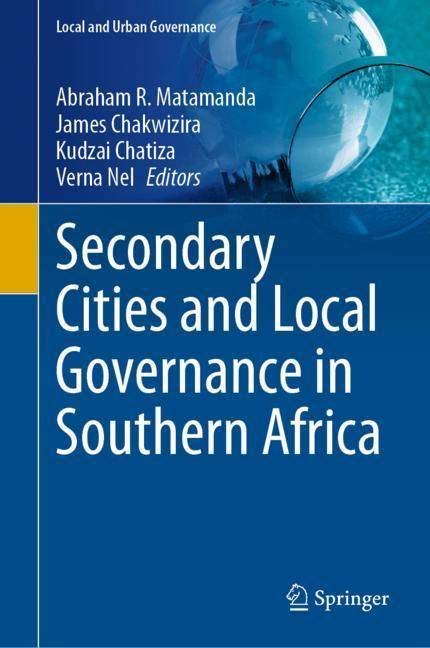
- Afhalen na 1 uur in een winkel met voorraad
- Gratis thuislevering in België vanaf € 30
- Ruim aanbod met 7 miljoen producten
- Afhalen na 1 uur in een winkel met voorraad
- Gratis thuislevering in België vanaf € 30
- Ruim aanbod met 7 miljoen producten
Zoeken
Secondary Cities and Local Governance in Southern Africa
€ 244,45
+ 488 punten
Omschrijving
This book is the first to consider the roles, challenges and governance responses of secondary cities in southern Africa to changing circumstances. Among the challenges are governance under conditions of resource scarcity, managing informality, the effects and responses to climate change and the changing roles of the cities within the national space economy. It fills the gap in the literature on secondary cities with original case studies drawn from South Africa, Zimbabwe and Mozambique. The authors are all African scholars, working and living in the region with intimate knowledge of the settings they describe. The book is critical as it includes such regional case studies of different secondary cities in Southern Africa but also because of it's multidisciplinarity: it contains substantive and pertinent issues such as climate change, disaster management, local economic development, and basic services delivery. It considers diverse environments, yet with similar challenges that could provide useful policy and governance proposals for other cities.
Specificaties
Betrokkenen
- Uitgeverij:
Inhoud
- Aantal bladzijden:
- 330
- Taal:
- Engels
- Reeks:
Eigenschappen
- Productcode (EAN):
- 9783031498565
- Verschijningsdatum:
- 17/01/2024
- Uitvoering:
- Hardcover
- Formaat:
- Genaaid
- Afmetingen:
- 154 mm x 236 mm
- Gewicht:
- 748 g

Alleen bij Standaard Boekhandel
+ 488 punten op je klantenkaart van Standaard Boekhandel
Beoordelingen
We publiceren alleen reviews die voldoen aan de voorwaarden voor reviews. Bekijk onze voorwaarden voor reviews.







